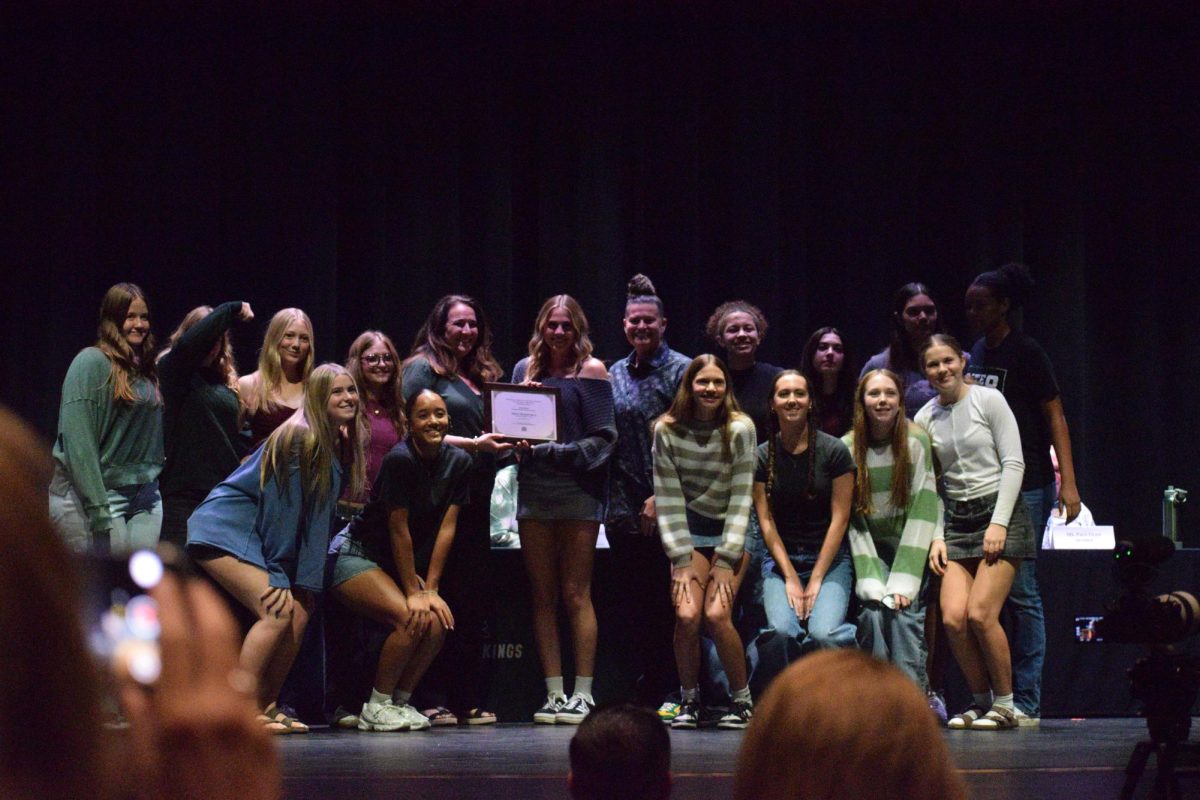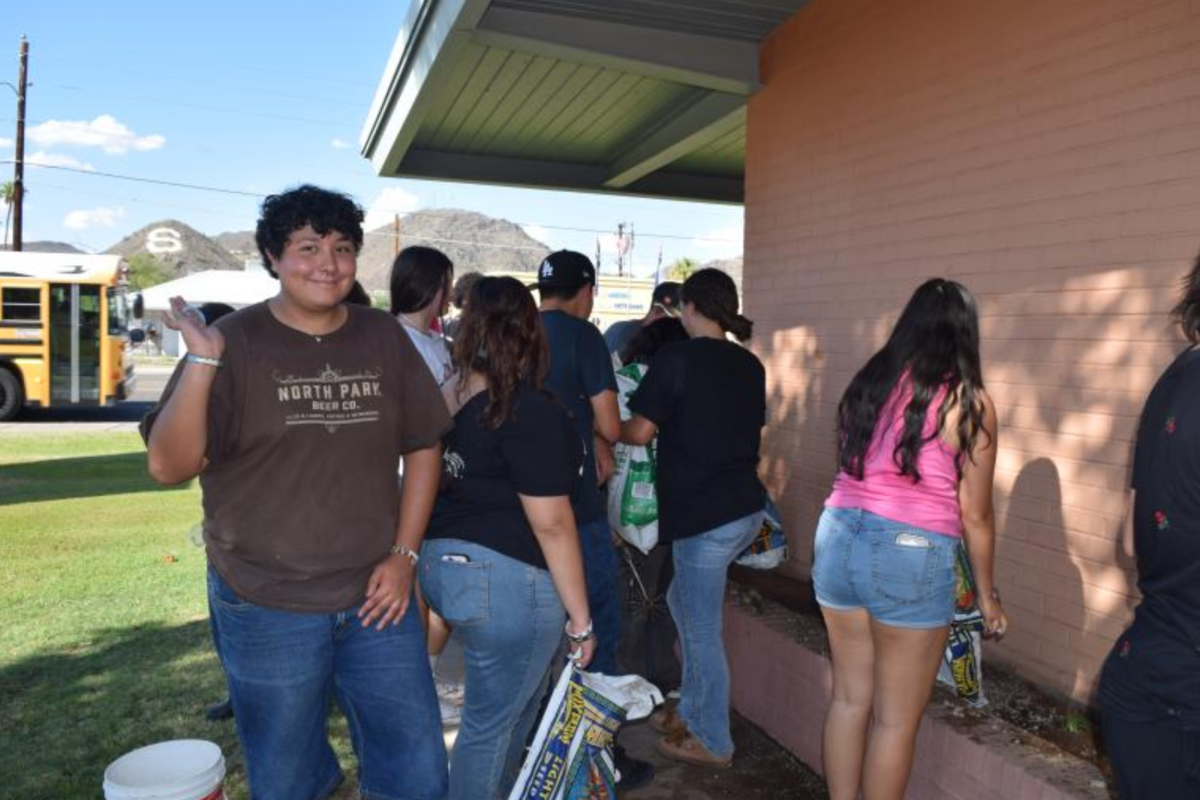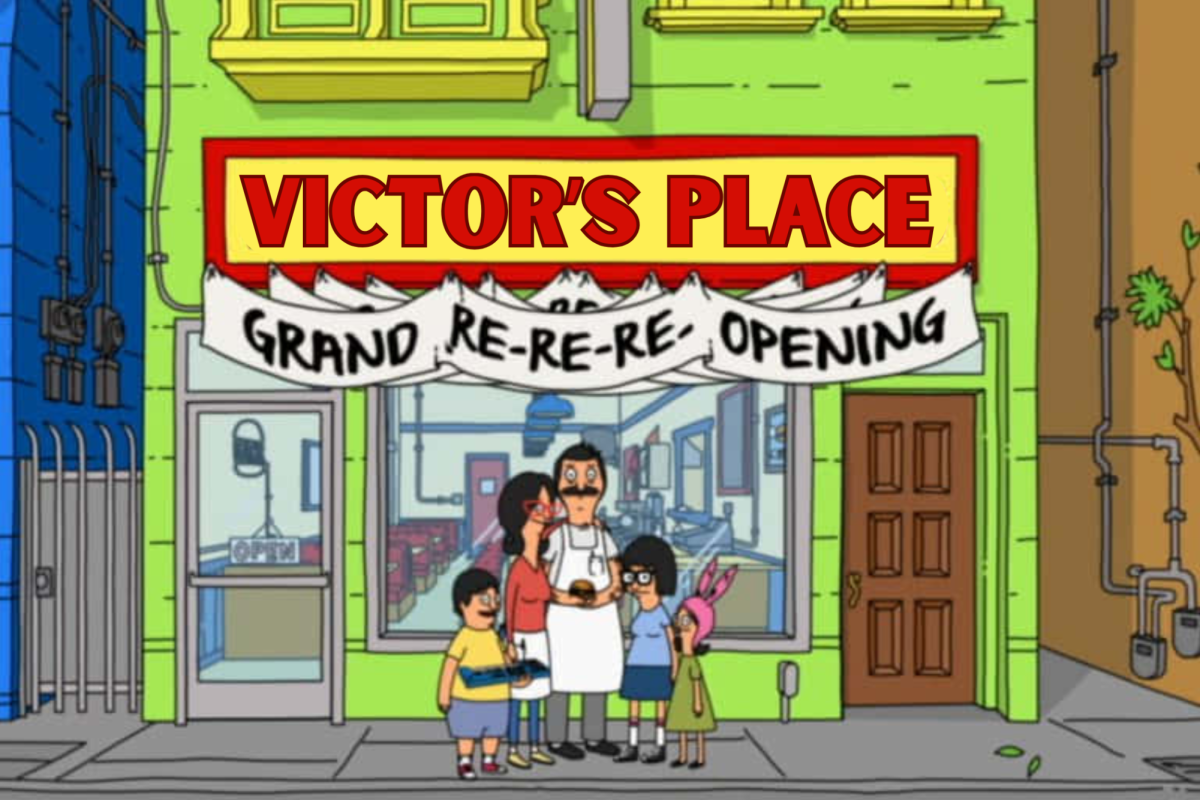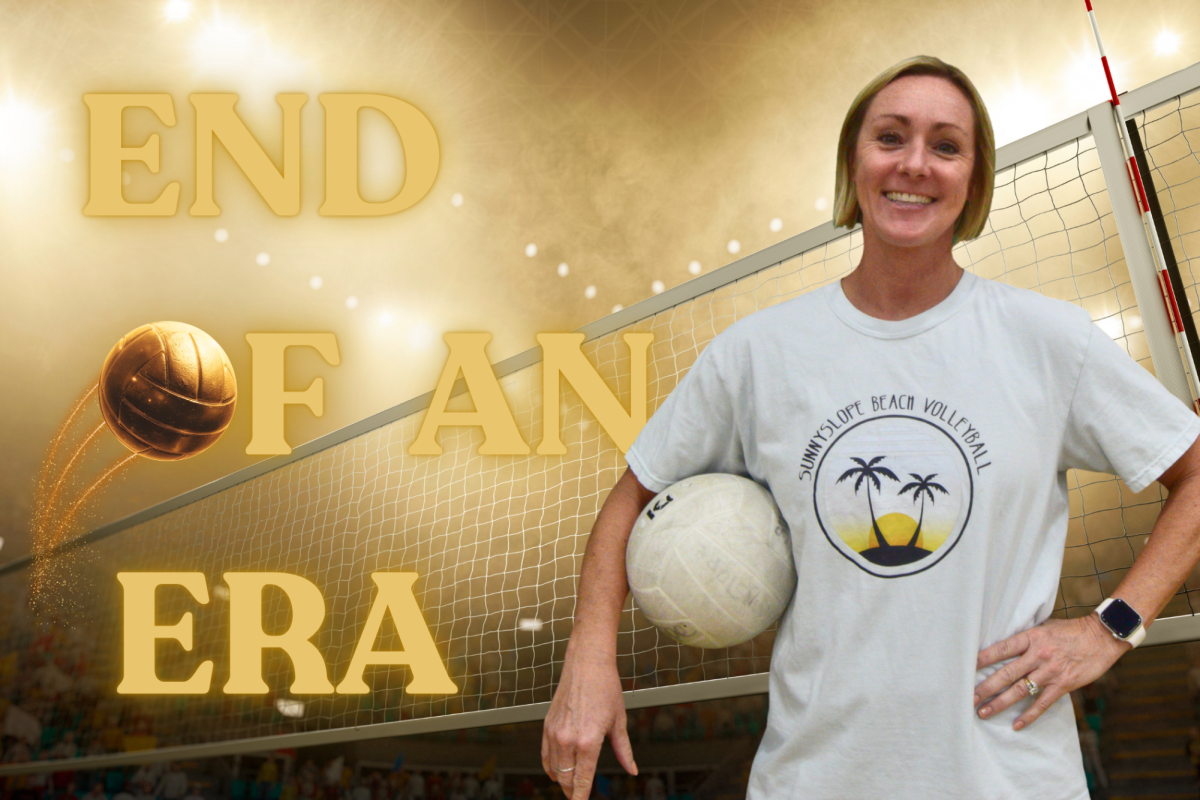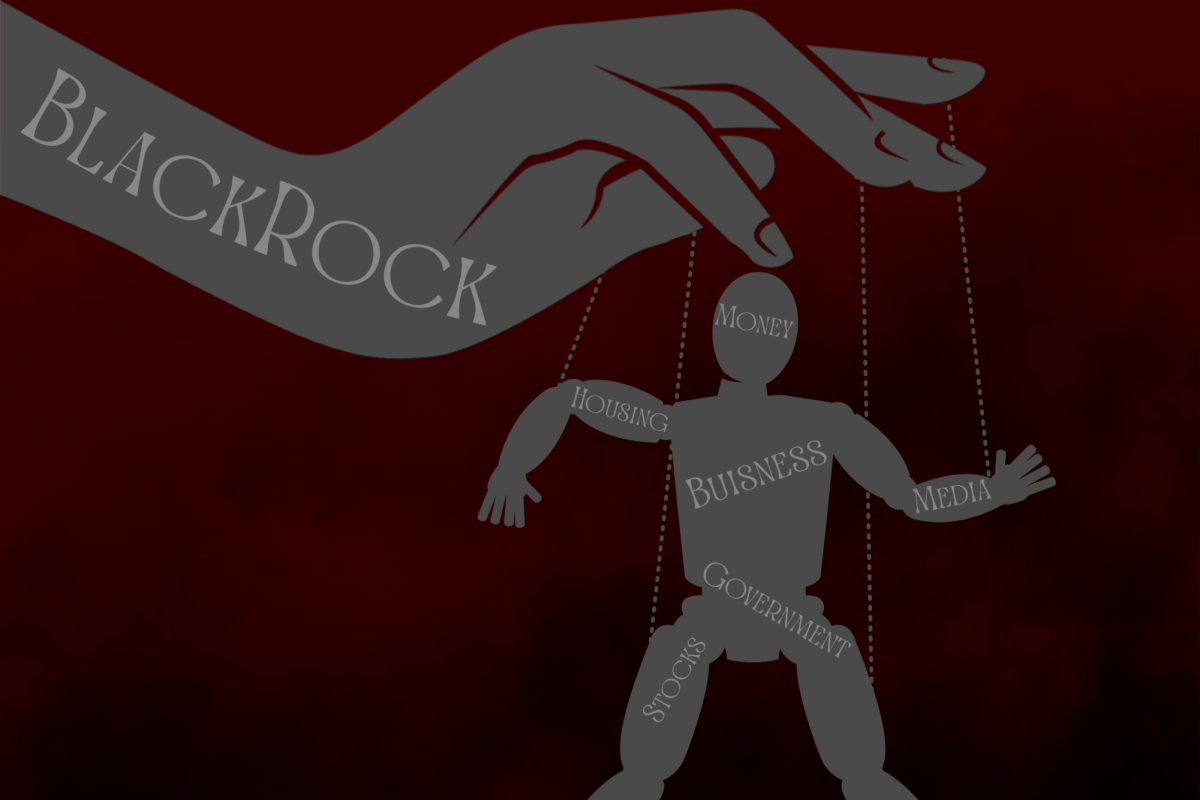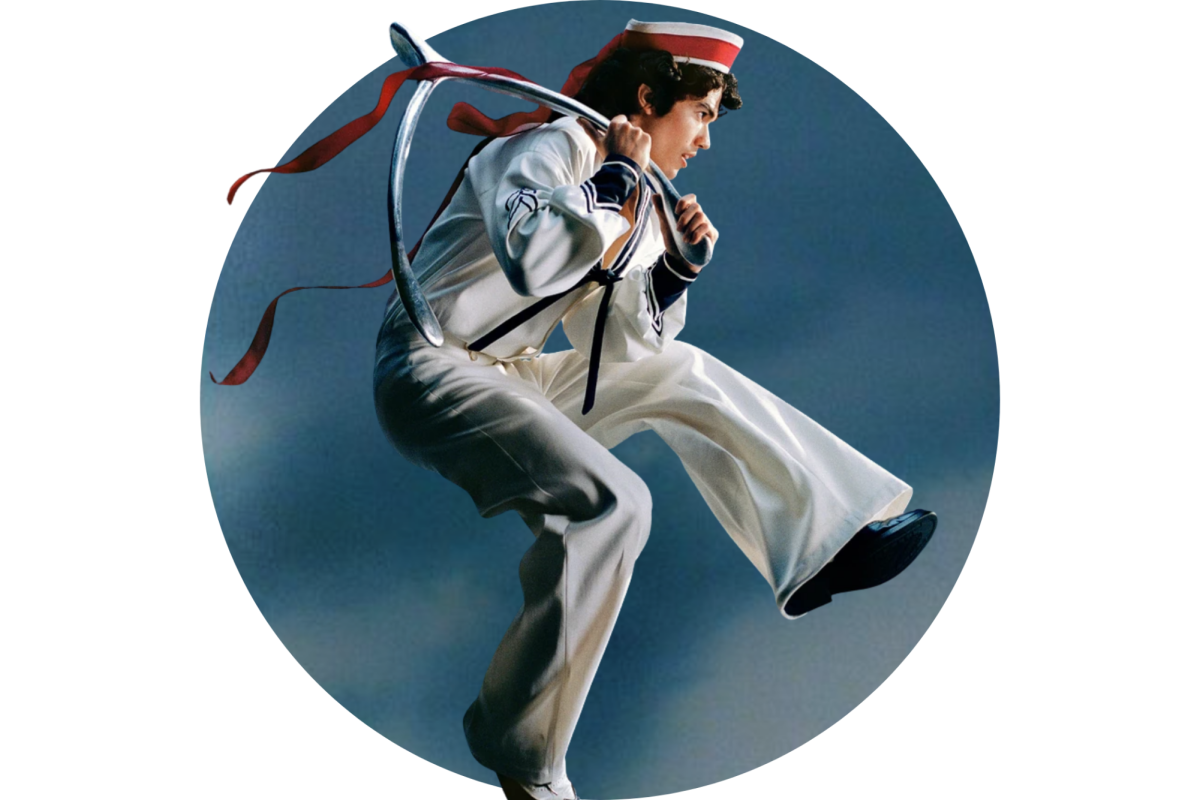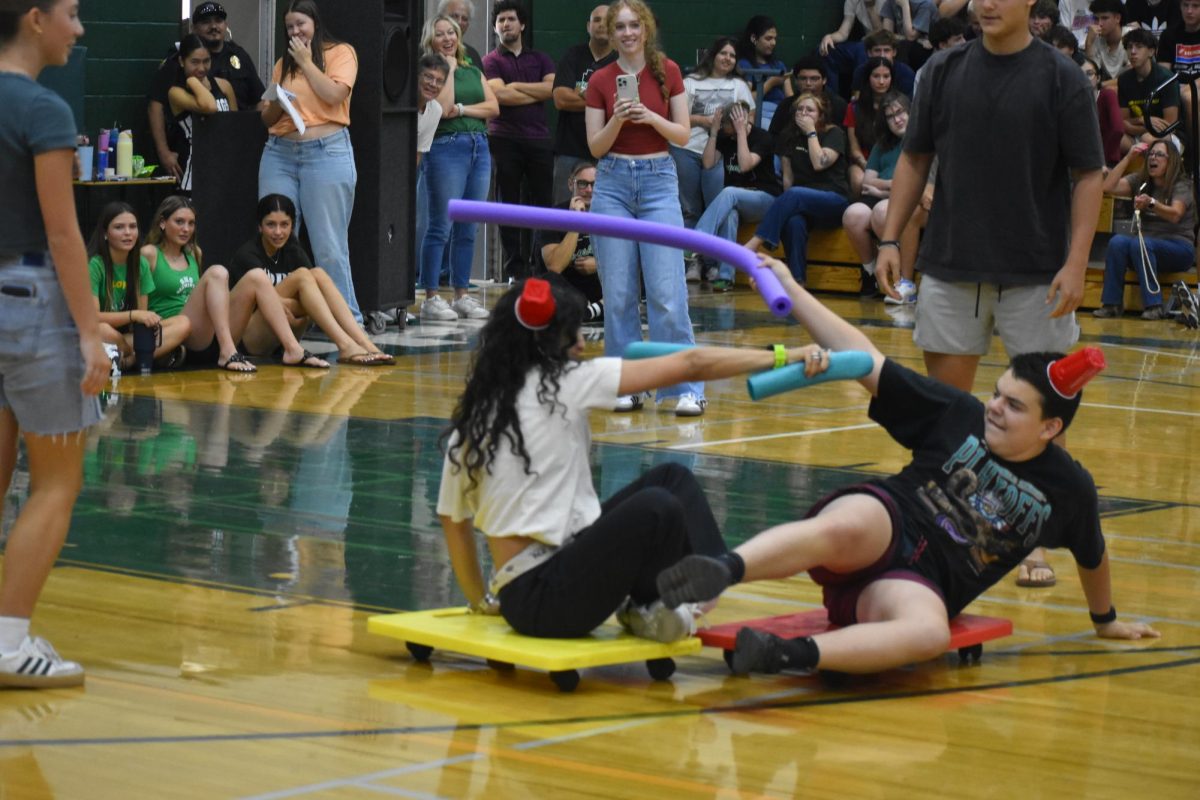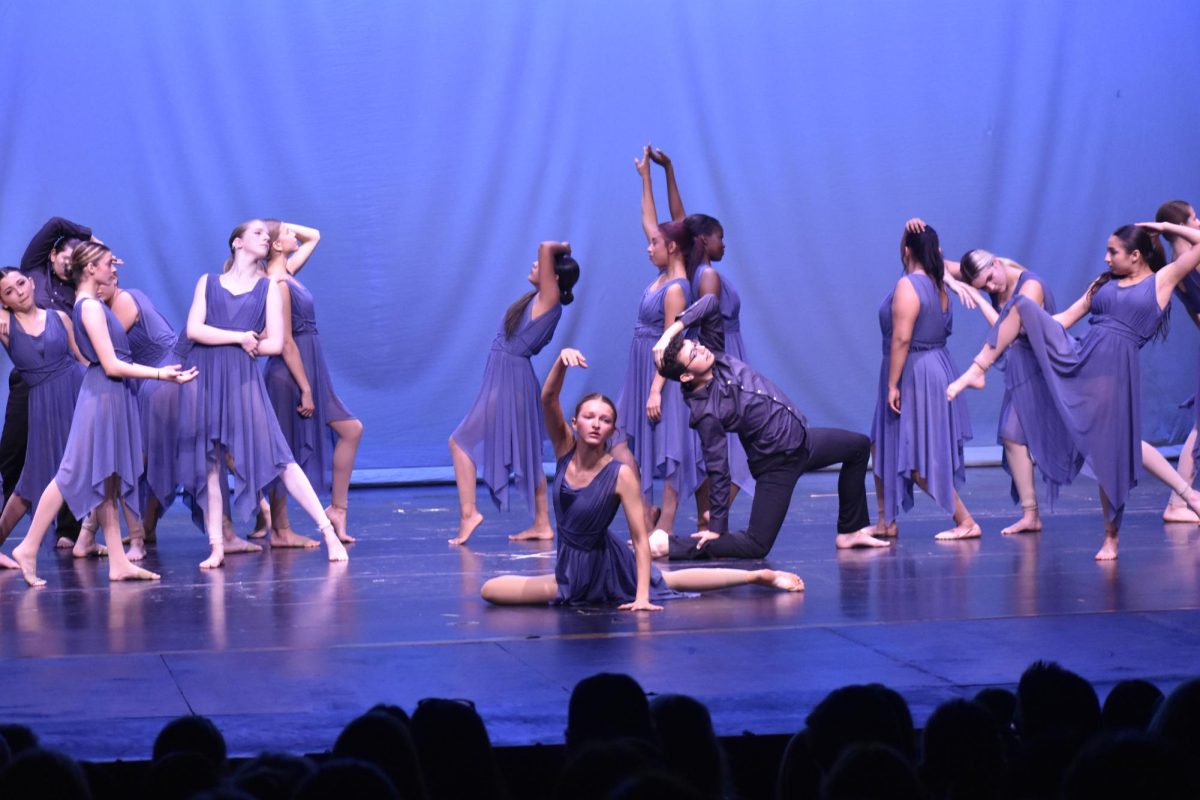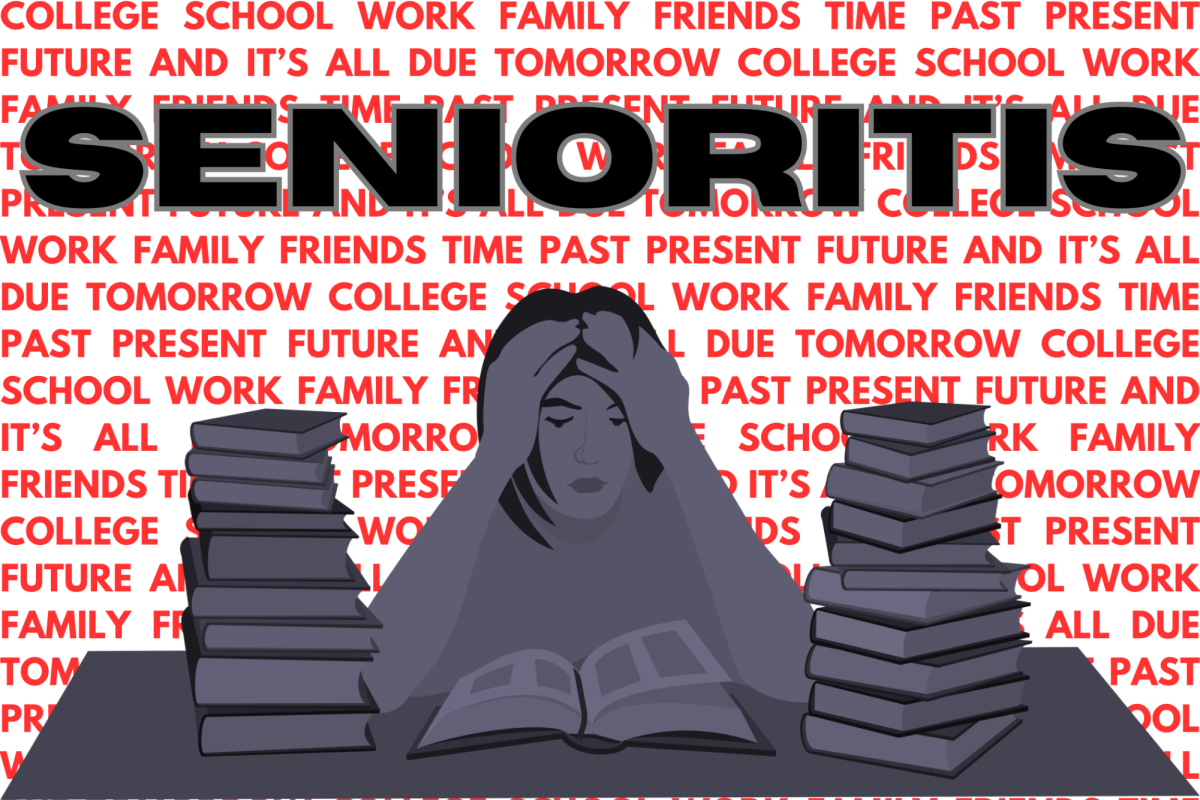High School seniors carry a level of exhaustion that surpasses every graduating class below them.
After four years, it can feel as though you drag yourself from one classroom to the next.
This pattern of behavior is often reduced to its surface level appearance.
Students that were once committed to their high school careers have no logical reason for such a steep drop, at least that’s how this gap can come across to educators and parents alike.
It’s easy to assume a student is lazy rather than motivationally paralyzed, especially when this sharp downturn is so widespread among 400 students.
Despite this assumption, I believe this phenomenon is often oversimplified without proper consideration of the multitude of struggles that comes with being a young adult, preparing for the world ahead of you.
After all, the average senior has a lot more than just school going through their head.
For example, when comparing a 6 hour working shift full of productivity and monetary gain, the 6 hours sentenced to sit in a metal chair seems bleak.
Senior Kay Miller, an employee of over two years at the Water & Ice on Dunlap and Central, said, “it’s fulfilling to earn money for the work you put in, and the independence you gain from having a job makes school feel less rewarding.”
Furthermore, when considering your future plans and thinking more about specific fields you find interest in, being assigned piles of busy-work seems like a frustrating waste of attention.
Senior Avery Millis-Wight expressed how her time is often torn between her present and future, and she is often left felt like she is not doing enough for her plans after High School, “I feel lazy not prioritizing my future over my day to day, but I also know that this is the last year before I have constant adult pressures and responsibilities, so there’s really no solution,” she said.
On the other end of the spectrum, Senior Olivia Brooks said that her future plans necessitate at least 1-2 hours of action a day, “School work now seems like the least of my worries, forcing me to not take it as seriously,” she said.
This is the tightrope that an entire class balances upon every year.
As students grow up and gain more responsibilities and understanding of the world around them, schooling appears more and more like a daycare rather than a valuable educational facility.
Miller thinks it’s the redundancy of schoolwork that has waned her motivation.
“[the work] often doesn’t feel meaningful or connected to anything beyond getting through the day,” she expressed.
Some adults think that senioritis is nothing but an excuse for the gap in academic effort.
Removed from their teenage years, a senior can admittedly appear inexplicably inoperative.
All adults have been through a similar experience as they finished their schooling, but now with the perspective of adulthood in mind, it adds a level of disconnect.
When asked about student’s failing to take advice to heart, Math Teacher and Swim Coach Cameron Licht said, “I think it’s the exact same problem I had [as a senior], it’s easy to not take something seriously when you haven’t been alive long enough to know you should.”
This disconnect is not because they don’t empathize with students, but because they stand with a clear view of adulthood and its adversities that a teenager cannot yet fathom.
Licht said it’s challenging to get through to kids because it takes “a lot of self correcting to get out of a slump,” which can be difficult when someone has already dug themselves into an academic hole.
While their wisdom is valuable, it’s difficult for it to be properly communicated to someone without any precedent of the outside world.
Because of these opposing perspectives, discussion between the groups can be impeded, leaving both adults and students unable to rectify the decline in effort.
Though he sees the low academic effort as preventable, Licht admits that there can be harsh judgments and assumptions from teachers.
“I think the default has probably been to assume [that students] are more coddled versus troubled. It really depends on how much the teacher knows about the kid’s background,” Licht said.
The push and pull of the contrasting perspectives fosters an inherent misjudgment of one another, frustrating both adults and students.
However, when faced with decisions that can feel isolating, the frustration toward a support system that was once a beacon of guidance can cause students to feel lost and misunderstood.
“Senioritis is often misunderstood by adults because it’s about so much more than laziness. It’s a mix of emotions – unmotivated, scared, defeated, and overwhelmed with overthinking,” said Miller.
This issue amongst students is more than just a word, and is a disservice to every young person to oversimplify their multifaceted struggle by labeling them as “Lazy.”
Once you come to terms with the fact that school is nothing like “High School Musical,” the whimsical hope that keeps students invested wears off.
The superficial, yet deeply valued, traditions in high school become dull when they were once shiny.
I know that I used to go to every single football game freshman year out of fear of being left out.
Now, I realize that football games are really just a way to risk heat stroke by standing in extreme proximity to some slightly offensive smelling peers, while somehow still not being able to hear a word anyone says.
Millis-Wight said, “Being ‘grown up’ is much less appealing [now], and I’ve realized that my motivation and effort in school doesn’t always reflect treatment by teachers or parents, so it’s hard to start trying.”
And just like that, the magic is gone.
The value that these kids find in high school socialization has also diminished, as they aren’t fighting for a place anymore.
“Another thing that becomes tiring is the constant judgement people have for one another,” said Brooks.
The social competition becomes negligible as you mature.
Millis-Wight spoke further of the shared distaste for drama and gossip.
“I don’t care about you and you don’t care about me, so why are we talking about or to one another?” she said.
The pettiness of high school friendships and relationships have seemingly discouraged kids from being involved as they once were.
Miller said, “Drama that once seemed so important also faded as I’ve grown more confident in who I am and what I want out of life.”
The disconnect these young adults feel to their past immaturity can make school feel like a place doomed for stagnant growth.
These disappointing realizations about a place that once housed our proudest memories emphasize the loosening grip these students have on their childhood.
Miller said, “Senior year marks the end of a significant chapter in our lives, and many of us struggle with accepting that reality. It’s not just about being tired of school; it’s about facing the uncertainty and emotional weight of what comes next.”
In reality, what some consider senioritis is really a crisis amongst the youth as they teeter between adolescence and adulthood.
We are slowly and begrudgingly outgrowing our lives of simplicity.
While these students have grown tired over time, it doesn’t mean they have completely devalued the experience.
Brooks said, “Now I understand why people say it’s a privilege to attend school, even if some days I can’t bear to be there.”
A year from now, the people and experiences you’ve grown up with will be scattered across the globe, never being in the same place at the same time ever again.
This reality causes a sense of mourning, as the students cling to their cherished friendships, communities, and memories, despite the surface-level appearance of an academic slack.
While to the outsider the senior slump may appear as waving a white flag, these students are truly consumed with transitioning into a world of the unknown.
It’s bittersweet, and everyday they are reminded of what holds them down, for better or for worse.


